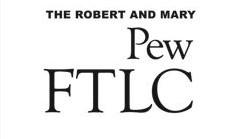Integration of Professional Skills and Academic Content during Co-op Semesters via Distance Learning Modules
Session Location
Eberhard Center 514
Session Start Date and Time
24-8-2011 1:15 PM
Session End Date and Time
24-8-2011 2:15 PM
Session Abstract
Distance-learning modules ranging from ethics and professionalism to project management were developed and delivered during co-op semesters. Content of the modules was selected to enhance the experience of students in the workplace, providing an opportunity for the students to apply what they were learning. The scaffolded curriculum was designed to account for the maturity level of the students. This session will discuss results from the pilot program in 2011 and applications to other programs including internships and service learning activities.
Session Description
The project entailed the production of modules to be used as distance-learning educational material during the co-op education courses by engineering students. These modules targeted the coverage of professional skills that engineering students need but do not easily get from on-campus, traditional technical courses. The content of the modules for the pilot study were geared toward the first co-op semester and included introductory material in three areas: engineering ethics and professionalism, engineering economy, and project management. Modules were designed to be relatively brief, focused packets of information that can be reviewed within a 30-60 minute timeframe. The modules were delivered via Blackboard and consisted of written materials, papers, videos, and websites. Each module had an associated, short quiz that was automatically graded in Blackboard. Modules were ‘open’ at scheduled times throughout the semester and students were required to complete them during that timeframe. A primary instructor was available for discussion and to answer questions via email, chat or discussion board.
During the winter 2011 semester, a pilot study was conducted with twelve students to get input on the current co-op academic content, and to assess the viability of the proposed academic modules. A pre-study survey and post-survey were conducted along with a quiz for each of the six modules. A larger pilot study is being conducted during the summer 2011 with approximately 70 students, who are completing the first co-op semester.
In the post-survey for the winter 2011 pilot study, students were asked whether the modules were a worthwhile addition to the co-op experience, and 7 out of 12 post-survey respondents indicated agree or strongly agree. Eleven of twelve respondents indicated the modules were appropriate for EGR 290 (first co-op semester). The range of times spent on an individual module ranged from 35 minutes to 45 minutes.
Students’ perceptions of their knowledge in the topics presented in the modules were greater than their actual demonstrated knowledge in both the pre-survey and post-survey. For all three topic areas, scores in the post-survey did increase (if only slightly for engineering economics) from the scores in the pre-survey. In all three topic areas, the actual demonstrated knowledge post-survey was below expected levels, and would need to be addressed in future offerings.
The average scores on the quizzes associated with each module indicated that students performed at an acceptable level. Average scores on the quizzes ranged from 61% (ethics/professionalism module 2) to 94% (project management module 1).
The complete curriculum of online modules would constitute a thread of three full courses that would be divided over the three required co-op courses. Having exposure to these practice-related issues while being in the workplace presents a unique opportunity for the students to apply what is learned. The curriculum is being designed to accommodate the logistics of the co-op courses and the maturity level of the students. In every co-op course the students will be exposed to a related set of skills at a gradually advanced level and expansion.
PowerPoint Presentation
Integration of Professional Skills and Academic Content during Co-op Semesters via Distance Learning Modules
Eberhard Center 514
Distance-learning modules ranging from ethics and professionalism to project management were developed and delivered during co-op semesters. Content of the modules was selected to enhance the experience of students in the workplace, providing an opportunity for the students to apply what they were learning. The scaffolded curriculum was designed to account for the maturity level of the students. This session will discuss results from the pilot program in 2011 and applications to other programs including internships and service learning activities.

